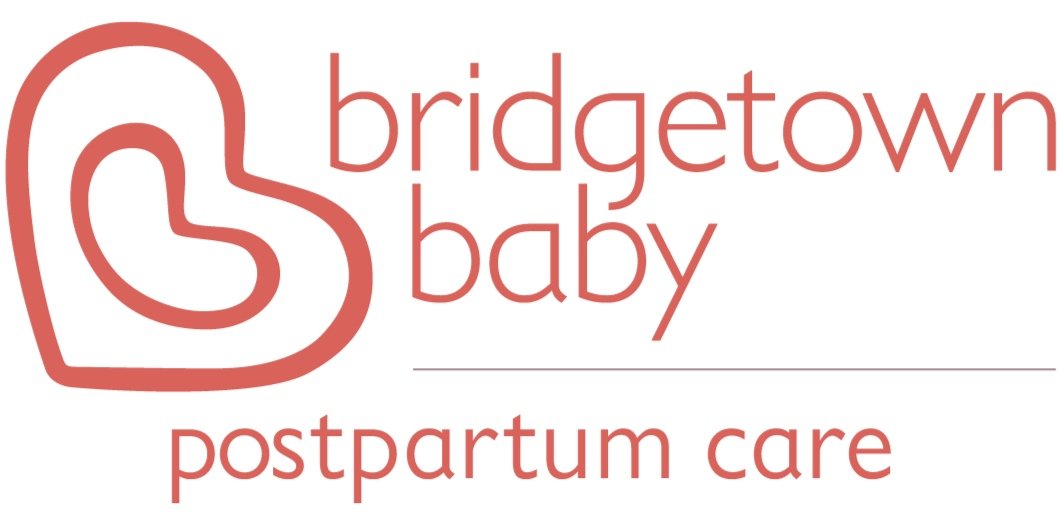Partner Post: Healthy Food for Whole Family Wellbeing
by Ashley Koch, Functional Nutritionist, MS
Image courtesy of Ashley Koch Nutrition and Wellness
Inside of us, there is a rich inner life that orchestrates the millions of complex metabolic activities that happen each day. This orchestrated dance either allows us to thrive or perpetuates chronic disease - and the daily decisions we make for ourselves, and our children will impact not only our bodies, but the future generations in our family.
In many cases the life experiences of the generations before you, such as lack of access to quality nutrition or trauma, could be impacting how you are feeling in this very moment as you read this article. Decisions we make about our health, what we eat, our lifestyle, the way we love, the way we manage stress, the physical activity we engage in and the way we move through this world will impact the future wellbeing of ourselves, our children, and our future grandchildren. What is on the end of our fork is information for the body and will inform the genetics we want to turn on or off.
It’s not too late, your genetics are not your destiny.
The great news is that your genetics are not your destiny, and the bacteria in your gastrointestinal tract can be shifted to your benefit. Dr. Michael Stone, a family medicine doctor who has dedicated his life’s work to the development of children and families, reminds us that “you can turn on and off genes within three to six hours by what you eat, what you do, what you think, by how you sleep, how you move, and how you have relationships. It is by this that you can create a healthy life and reverse a disease condition.” The diet and lifestyle choices you make for yourself and your children each and every day can create an impact that can positively or negatively impact health outcomes, regardless of your past. Whenever you decide to start, you still have the ability to shift future health outcomes for yourself or your children.
How your gut is the key to your health.
What I love most about my work as a functional nutritionist is the opportunity to help adults and children cultivate a healthy gastrointestinal system or repair this system. The gastrointestinal system is vital for the digestion of your food, the absorption of vital nutrients that allow the body to thrive, and the elimination of unwanted or harmful toxins. Within the gastrointestinal tract lives the microbiome, a complicated ecological community of bacteria that have a relationship with your body that is sometimes cooperative and at other times disruptive. The gut microbiome houses over 70% of the entire immune system. The surface of the gastrointestinal tract is interacting with what is coming down your tube and checking every morsel to determine if it is friend or foe. In addition, 75% of your neurotransmitters live inside your gut - these are the messengers that travel through the blood to the brain. This is why each bite of food has the ability to influence how we feel.
The shape and diversity of a microbiome is determined by several factors, which include:
mode of birth
ability to breastfeed
genetics
stress
presence of disease
age
living conditions
medications such as antibiotics and NSAIDs
diet
Colonization of an infant microbiome occurs at birth and potentially while in utero. Because the early microbiome of an infant is found to contain the contents of mother’s vaginal, skin, oral, and fecal bacteria, we understand that helping mom protect her microbiome can lead to positive outcomes for baby. And once baby receives mom’s helpful bacteria, there are many things we can do to protect its future well-being.
Food choices are key
Our modern diets are filled with foods that negatively impact the microbiome and are replete of vital food components. So often the modern diet is high in protein, high in animal fat, low in colorful plants, high in processed foods, low in fiber, high in food additives and chemicals, and low in adequate nutrients which can lead to the detriment of your microbiome. A balance of whole, mostly plant based, colorful foods is integral in protecting the bacteria within the gut.
The exciting thing about food is that most of us interact with it 3-5 times per day, and that offers us many daily opportunities to give the body what it needs. Food is information and energy the body needs to function, grow and thrive. Early childhood food experiences, in utero and beyond, can influence your child’s future health outcomes. Approximately 90% of your child’s brain is developed before the age of 5 years old and nutrition plays a pivotal role in this brain development. Emerging evidence now places nutrition at the forefront as a tool for mental health prevention and behavioral outcomes. Therefore, a focus on maternal nutrition and early childhood eating experiences can be a great place to start for many families.
How to teach your child to value healthy food.
Teaching our children the value of healthy food is a parenting skill worth cultivating. Like many tools we hope to equip our kids with, it is not something that just happens easily for most parents. Helping your child prioritize healthy, growing foods can require hard work, preparation, and often perseverance. There are many strategies and approaches that can help your child build the skills as a competent healthy eater. When possible, model healthy food choices and food relationships for your child. These growing and inquisitive minds are always watching and learning form us each day.
Ellyn Satter’s division of responsibility feeding model can be useful to parents. In this approach we accept that we as parents decide what, when and where children eat, our children decide how much and if they will eat at all. Parents are the gatekeepers for the range of foods that come into their home, setting up regular meal schedules, and removing distraction from eating routines. Once we take on our role within the feeding dynamic, we can allow room for our children to become capable independent eaters. When provided with a variety of nutrient dense foods, most children are incredibly capable of making choices that meet the energy demand of their bodies. Finally, what we feed children influences what they like. Research validates that it can take 10-20 tries for a child to enjoy and accept new foods. It is developmentally appropriate for children to be cautious with new foods and flavors. The experiences we are creating around food from in utero and beyond are influencing their developing tastebuds. This is just scratching the surface of approaches parents can take to build a healthy relationship with nutrient rich food. If you want to explore additional ways to navigate feeding dynamics with children, you can read more here.
As a mom of veggie loving adventurers (who also love pizza) and a nutrition advocate, I can tell you no parent has ever said to me, “feeding kids healthy is easy.” I can also tell you the time and energy you put in is worth it - and it’s never too late to get started. Can we teach our children to grow and care for their internal gardens and bodies as if their health and the health of their future children depends on it?
Ashley Koch is a Functional Nutritionist, providing one-on-one in-person and virtual counseling through BioLounge in NW Portland. She collaborates with patients on finding a balance between food and lifestyle choices that allow the body to functional optimally, and most often relies upon accessing quality whole foods and targeted nutrients through supplementation to address symptoms. Learn more about Ashley here and access her special offer for Bridgetown Baby families, which includes a free 15-minute consultation.

